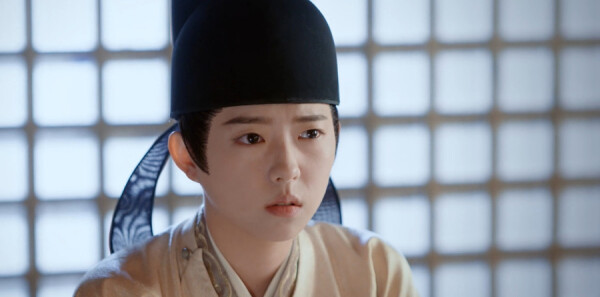Death in Venice and Other Tales《The Lover Is More Divine, For the Wretc
- 书评
- 2023-03-26 02:51:17
- 79
Here was the old plane tree not far from walls of Athens—a holy shadowy place filled with the smell of agnus castus (cherry) trees. Clear and pure the brook fell across the smooth pebbles. On the grass two people were stretched out: an elder man and a youth one ugly and one beautiful wisdom next to loveliness. Socrates was instructing Phǽdrus. He spoke to him of the hot terror which the initiate suffer when their eyes light on an image of eternal beauty. But the greed and the wicked cannot think of beauty when they see it.
“The noble-minded feel the holy distress when a god-like countenance a perfect body appears before them. They will if not afraid of being thought downright madmen sacrifice to the beloved as to the image of God.”
He is the just-perfect noble mind. Gustav von Aschenbach son of higher officials magistrates government functionaries who had led severe steady lives is “the author of that lucid and powerful prose epic of Frederick of Prussia the creator of the stark tale called The Wretch and the passionate treatise on “Art and the Spirit” which had been placed by the cautious judges along with Schiller’s conclusion on naïve and sentimental poetry”. The great artist from his early age has put discipline on top of his life—much the same as his forebears and quite similar to the monotonous boring life of the unartistic mass population. He has made every aspect of his life a model—for those youth he felt in his serious artist attitude to have responsibilities to guide.
And he is absolutely the beloved. Tadzio a 14-year-old boy from a upper-class family has a “face pale and reserved fr
It’s no wonder Aschenbach fell in love with him as a deliberate expert a great artist who had devoted his life to the creation of beauty. This is not love but extreme affection. The aging artist appreciated him after their first meet in Venice—that city flatteringly and suspiciously beautiful half legend half snare for strangers.
People chase for the beauty praise it and remember it. We now still sing songs for the four beauties in our history so do people in other nations. Apart from beauty our human race admires truth kindness courage and knowledge. Interestingly among these common values beauty is the only one which has been criticized and praised as well throughout the history of human kind. Let’s think about the ancient saying: “beauties disasters.” We intend to show pure respect to the inner virtue those have to be acquired through efforts—public intend to believe mainly those are mainly owned by the ugly. Beauty on one hand is pursued by every means; on the other is criticized—or envied by the commons. Maybe we should first tell apart the beauty as an eternal goal which is praised and the ob
Reason and understanding and professional poise as time goes by become so numbed and enchanted that the soul forgets everything out of delight in astonishment becomes attached to the most beautiful ob
It was soon that Aschenbach in pure pursuit of Tadzio the “statue and mirror” of young god found laws of morality were dropping away. The atrocious seemed to b rich in possibilities. He like most noble mind most people who used to lead a reserved life and have discipline for himself recognized the danger immediately. After struggling in his mind he like most common public delightedly found enough reasons for justifying the changing situation. Even when in Venice fell into the nightmare of fatal plague he stalked him in every corner of this sick dying city.
Some days later the aging great master in literature circle who was enti
“For beauty my Phaedrus beauty alone is both lovely and visible. It is mark me the only form of spiritual which we can receive through the senses. Else what could become of us if the divine if reason and virtue and truth should appear to us through the senses? Should we perish and consumed with love?..Thus beauty is the sensitive man’s access to the spirit-but only a means simply.”
If what Socrates told Phaedrus is the principle Aschenbach had broken which led to his death Socrates denied himself in his following instruction.
“Beauty alone is both divine and visible at once. And thus it is the road of sensuous it is the road of the artist to the spiritual. But do you now believe that they can ever attain wisdom and true human dignity for whom the road to the spiritual leads through the senses? Or do you believe that this is a pleasant but perilous road the really wrong and sinful road which necessarily leads astray?”
Senses beauty spiritual art love emotion and reason are Socrates’ center topics. It seemed to him senses was the forever enemy of the spiritual. Emotion was the precipice of senses while reason was the peak of spirit. Beauty in both senses of the word led to either spirit or senses. Art very much like beauty the controversial ended in either emotion or reason. But he also admitted human have to reach the spiritual by the means of beauty.
“Our poets cannot take the road of beauty without having Eros join us and set himself up as our leader. Indeed we may even be heroes after our fashion and hardened warriors though we are like women for passion is our exaltation and our desire must remain love—that is our pleasure and our disgrace.”
We can think Aschenbach is a defeated warrior according to Socrates’ definition. He under the guidance of Tadzio the Eros the statue of beauty and love ended up in the precipice. But this is not the whole truth.
In Socrates’ ideal concept art and artist should be high in spirit keep far away the devil of emotion and create the pure fruit of sacred knowledge (though he admitted the dilemma of the situation). Then was the level of art Aschenbach had reached before he met Tadzio really a level of art? A self-behaved dedicated artist through his can-not-fault life successfully escaped the deterioration of ordinary youth and smoothly reached the unprecedented level of his field. Was his expiration doomed? Did his early success have congenital defect due to the lack of temptation and distress from love? Aschenbach thought at his first sight of Tadzio that he was the eternal goal of art but it turned out that he was also the starting point towards emotion. So Aschenbach though he had “reached the peak of literature”(spirit) still long for emotion.
The only answer is Socrates fell into a deliciously self-made intolerance. The pleasure of art comes to both emotion and reason and further both sense and spirit. But the latter obviously cannot have equal appeal to the former towards human nature. Aschenbach’s art reached a very high level in its spiritual part thus was still vulnerable when he met Tadzio. Socrates’ hatred or intolerance towards emotion may came from the common psychological condition of most educated men—feud against completely animal nature. But sadly however strong human mind is facing the temptation from knowledge and emotion most of us chose the latter. And the reason for the rest is only that the temptation is not big enough. Our deepest need for satisfaction and sense of security finally have to be met in our nature as human species.
And art is only a means to realize the whole picture.
“Let us renounce the dissolvent of knowledge since knowledge has no dignity or strength. It is aware it understands and pardons but without reserve and form. From now on our efforts matter only by their yield of beauty or simplicity greatness and new rigour a second type of openness. But form and openness lead to intoxication and desire lead the noble into sinister revels of emotion they too lead to precipice. Now I am going Phaedrus. When you no longer see me then you go too.”
本文由作者笔名:小小评论家 于 2023-03-26 02:51:17发表在本站,文章来源于网络,内容仅供娱乐参考,不能盲信。
本文链接: http://www.w2mh.com/show/12819.html
 小小评论家
小小评论家






















